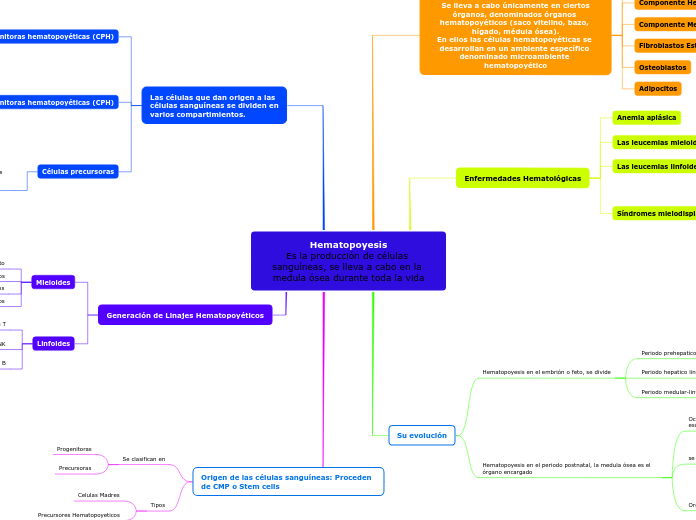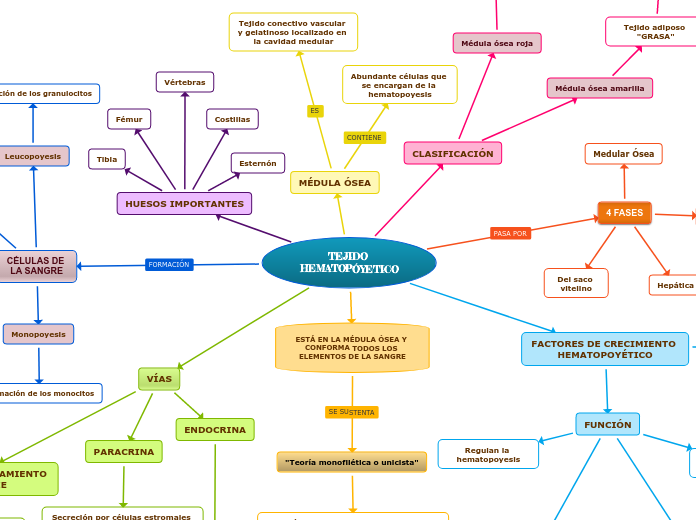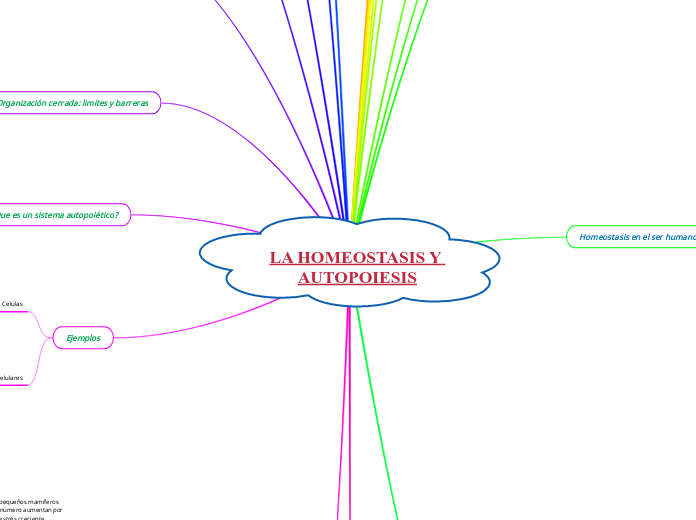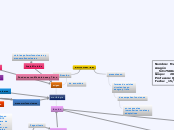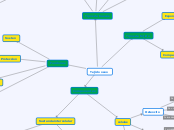Topic flotante
Hematopoyesis
Es la producción de células sanguíneas, se lleva a cabo en la medula ósea durante toda la vida
In linguistics, syntax is the set of rules, principles, and processes that govern the structure of sentences in a given language, usually including word order.
Origen de las células sanguíneas: Proceden de CMP o Stem cells
Tipos
Precursores Hematopoyeticos
Celulas Madres
Se clasifican en
Precursoras
Progenitoras
Generación de Linajes Hematopoyéticos
A compound sentence is a sentence that has at least two independent clauses joined by a comma, semicolon or conjunction. An independent clause is a clause that has a subject and verb and forms a complete thought.
Linfoides
Create your own compound sentences, using the coordinators above.
Linfocitos B
Celulas NK
Linfocitos T
Mieloides
When independent clauses are joined with coordinators (also called coordinating conjunctions), commas and semicolons, they do more than just join the clauses. They add meaning and flow to your writing.
trombocitos
monocitos
eritrocitos
granulocito
Las células que dan origen a las
células sanguíneas se dividen en
varios compartimientos.
A complex sentence is a sentence that contains an independent clause and one or more dependent clauses.
An independent clause can stand alone as a sentence, but a dependent clause even though it has a subject and a verb cannot stand alone.
Células precursoras
An appositive clause follows another noun or noun phrase in apposition to it; that is, it provides information that further identifies or defines it.
Son aquellas que al madurar dan origen a las células que circulan
en la sangre, forman más de 90% de las células de la médula ósea y son reconocibles
por su morfología.
The subject clause is a dependent clause that acts as a subject.
pueden diferenciarse en varios linajes
Conservan el marcador CD 34, pero ya adquieren marcadores específicos del linaje al que darán origen.
(multipotenciales), en dos linajes (bipotenciales) o a un solo linaje (monopotenciales).
Las cuales no pueden autorrenovarse
pero conservan la capacidad de proliferar.
Células progenitoras hematopoyéticas (CPH)
A predicative clause may be introduced by conjunctions - that, whether, whether... or, as, as if, as though, because, lest, the way - or connectives.
The latter may be conjunctive pronouns - who, whoever, what, whatever, which - or conjunctive adverbs - where, wherever, when, whenever, how, why.
Llamadas también células madre, las cuales
son capaces de autorrenovarse y son multipotenciales Sus marcadores de superficie son CD34,
CD133, CD90 y carecen de marcadores específicos de linaje
Su evolución
Hematopoyesis en el periodo postnatal, la medula ósea es el órgano encargado
Organizacion histologica de la medula osea
Estroma
Parenquima
se distingue en
Amarillo
Rojo intenso
Ocupa el canal modular de los canales largos, de todo el esqueleto y esponja
Hematopoyesis en el embrión o feto, se divide
Periodo medular-linfoide
Periodo hepatico linfoide
Periodo prehepatico o mesoblastico
Enfermedades Hematológicas
Síndromes mielodisplásicos
See the example below and try to create your own simple sentences.
Tim is driving the car with his mother.
MDS con displasia multilinaje
MDS con sideroblastos en anillo
MDS con exceso de blastos
Las leucemias linfoides
See the example below and try to create your own simple sentences.
Tim is the driver.
Las leucemias mieloides
See the example below and try to create your own simple sentences.
Tim drives the car.
Tanto crónica como aguda
Anemia aplásica
See the example below and try to create your own simple sentences.
Tim drives.
Se lleva a cabo únicamente en ciertos
órganos, denominados órganos hematopoyéticos (saco vitelino, bazo, hígado, médula ósea).
En ellos las células hematopoyéticas se desarrollan en un ambiente específico denominado microambiente hematopoyético
Adipocitos
An adverbial is an individual word (that is, an adverb), a phrase, or a clause that can modify a verb, an adjective, or a complete sentence.
Osteoblastos
The attribute is defined as a quality or characteristic of a person, place or thing.
Fibroblastos Estromales
The predicative is defined as an adjective or noun forming or contained in the predicate.
Its main trait is that it serves to express a property that is assigned to a 'subject'.
For e.g.: The dog is old.
Componente Mesenquimal
Traditional grammar defines the object in a sentence as the entity that is acted upon by the subject.
Componente Hematopoyético
The predicate of a sentence is the part that modifies the subject in some way. Because the subject is the person, place, or thing that a sentence is about, the predicate must contain a verb explaining what the subject does and can also include a modifier.
Células del Estroma
The subject of a sentence is the person, place, thing, or idea that is doing or being something. You can find the subject of a sentence if you can find the verb.
Ask the question, 'Who or what 'verbs' or 'verbed'?' and the answer to that question is the subject.
